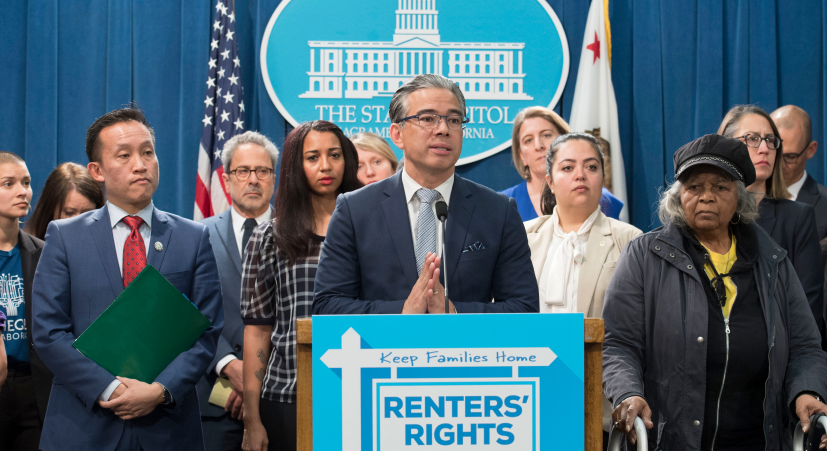
Housing

We All Belong Here
The housing crisis is the major driver of inequality in California. To fix it, we need to take a multi-pronged approach that recognizes the disproportionate burden that low-income communities of color bear for housing instability.
Our Housing Values
Housing should be treated like the fundamental human survival need that it is, alongside food and water. We consider access to housing for all residents — regardless of income level — to be a marker of civilized society. To fail to meet this need is a tragedy and a shame.
No one should be made to feel unwelcome in the Bay Area. Bay Area residents pride ourselves on our progressive, inclusive politics and those values should extend to those who want to make this region their home. This includes newcomers and long-term residents, old and young, and all races, classes, and creeds. Newcomers also should respect the perspectives of residents who have been here for decades, and seek to understand the culture, people, and history of this place they now call home.
Too often different factions in the housing fight view a win by another faction as a loss for theirs. Affordable housing developers sometimes get pitted against anti-displacement activists. Local governments play hot potato with responsibility for tackling the crisis. Piecemeal policy solutions are presented in the absence of a larger vision for how they fit together to end the housing crunch — and interest groups are left fighting for scraps.
We must create a different political dynamic that eschews either/or decisions and embraces a both/and approach. We must recognize that our fates are intertwined and adopt a spirit of collaboration if we are to break our political gridlock. The Bay Area can protect its current residents while welcoming newcomers. Building the Bay Area of tomorrow and defending the rights of existing residents do not have to be mutually exclusive goals.
Though we must be informed by our history, and place value on the existing culture of our neighborhoods, we cannot cling to the past as we look to make policy. Our population is growing, our economy is changing, and our climate and natural resources are under stress. Making policy that assumes we live in a prior century will hurt everyone.
We also need to embrace, and not repel, the companies and workers that make up the industries of the future. New, innovative people and ideas are necessary to solve this crisis. California has always been a place for entrepreneurs, and we should continue to nurture innovation and human progress, leaving no one behind in the new economy.
Housing Policy Goals
Production: We must build more housing at all income levels, with a priority on affordable housing
We have to build more housing.
The state needs 180,000 new units of housing every year to keep up with population growth. Over the past ten years, we have averaged only 80,000 units per-year. Breaking the gridlock that creates this restriction of supply will require us to look at every side of the issue. We’ll need to innovate where it’s possible and change political will where it’s not.
While we wait for new housing production to come online, we need to enact policies that prevent renters and low-income homeowners from losing their homes.
Protection and Preservation: We must protect vulnerable communities from being pushed out and preserve affordable housing where it already exists
While we wait for new housing production to come online, we need to enact policies that prevent renters and low-income homeowners from losing their homes. The passage of the California Tenant Protection Act of 2019 was a big first step, now we need to make sure those expanded protections are enforced.
We also need to preserve as much existing affordable housing as possible, supporting new forms of ownership such as land trusts and providing funds for nonprofit developers and public agencies to purchase privately-owned buildings to convert to permanent affordable housing.
Acknowledge and account for the racial bias inherent in the system
Underlying both of these policy priorities is a need to acknowledge that current settlement patterns and housing systems are built on a legacy of racism. Any work on housing policy must take this history into account, and support efforts to undo the effects of decades of government-sanctioned segregation and lack of investment in communities of color (particularly Black communities). This means racial impacts must be included in decisions about the location and prioritization of developments and that we should favor projects that bring benefits to existing community members. We also must hold communities that have traditionally practiced exclusion in their zoning and housing policies to account, and pursue policies that can add housing opportunities for all income levels in these places.
Housing Advisors
Stay Up-to-date
Sign up for our mailing list to get weekly updates on how you can get plugged in.





